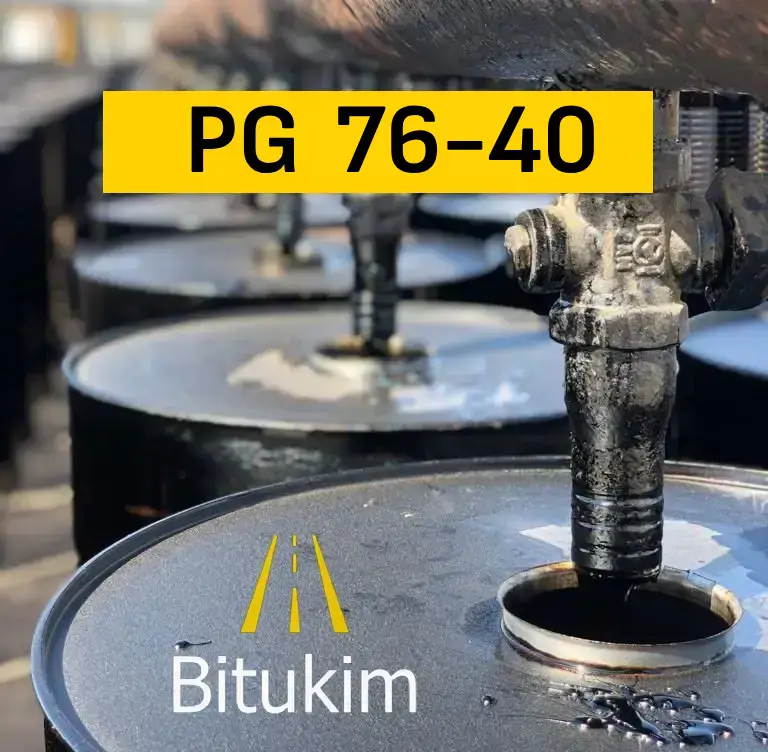
Polymer Modified PG 76-40
Introduction
Introduce Polymer Modified PG 76-40, highlighting its significance in the asphalt industry and how it improves pavement performance.
What is Polymer Modified PG 76-40?
- Definition: Explain PG 76-40 as a performance-grade asphalt binder modified with polymers to enhance its properties.
- Polymer Types: Discuss the types of polymers commonly used (such as Styrene-Butadiene-Styrene (SBS) or Atactic Polypropylene (APP)) and their role in modifying the binder.
Benefits of Polymer Modified PG 76-40
- Durability: Increases resistance to aging, oxidation, and weathering, extending the lifespan of pavements.
- Flexibility and Elasticity: Provides superior elasticity, reducing the risk of cracking in varying temperature conditions.
- High-Temperature Performance: Withstands high temperatures and heavy traffic loads without deforming or rutting.
- Cold-Temperature Performance: Maintains performance in colder climates, preventing brittleness.
- Adhesion Improvement: Enhances bonding with aggregates, promoting a more cohesive asphalt mixture.
Applications
- Road Construction: Ideal for high-traffic highways, urban roads, and airport runways.
- Pavement Rehabilitation: Used in overlays and sealants to restore and extend the life of existing pavements.
- Recycling: Can be effectively utilized in recycled asphalt pavement (RAP) mixes.
Performance Characteristics
- Viscosity and Workability: Discuss how the polymer modification affects the viscosity, making it easier to mix and apply.
- Test Results: Provide data from performance tests (e.g., Superpave testing) that illustrate the benefits of PG 76-40.
Environmental Impact
- Sustainability Benefits: Emphasize how Polymer Modified PG 76-40 contributes to sustainable road construction practices and its potential for reducing environmental footprints.

